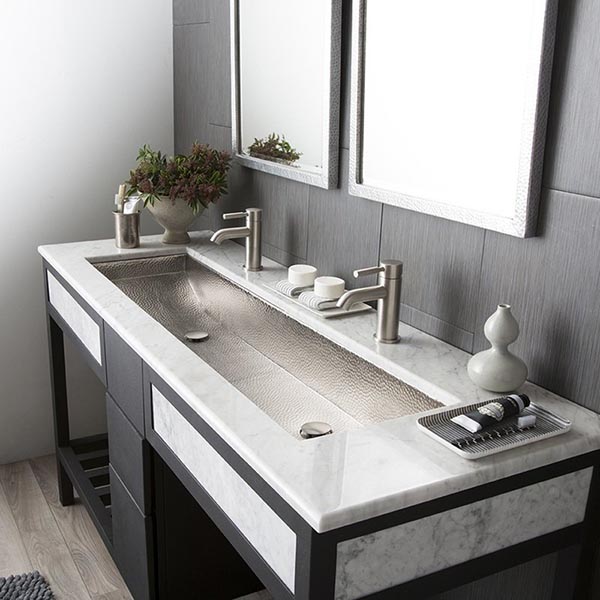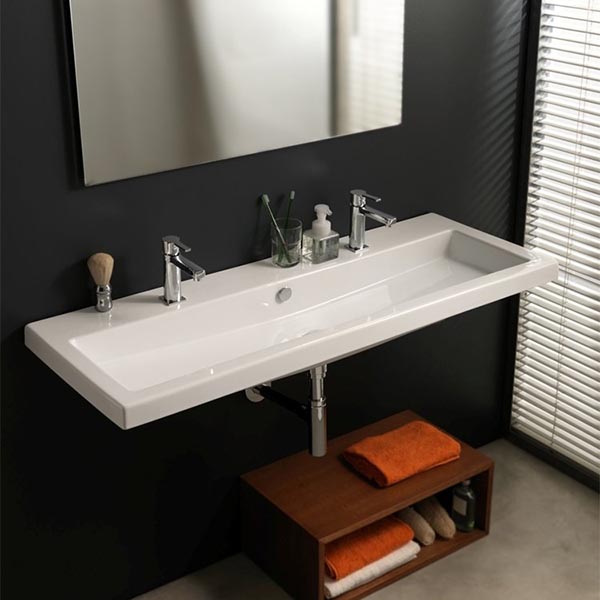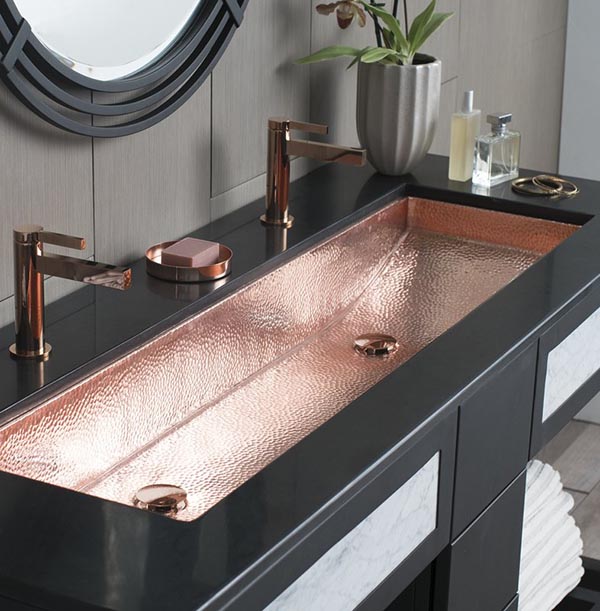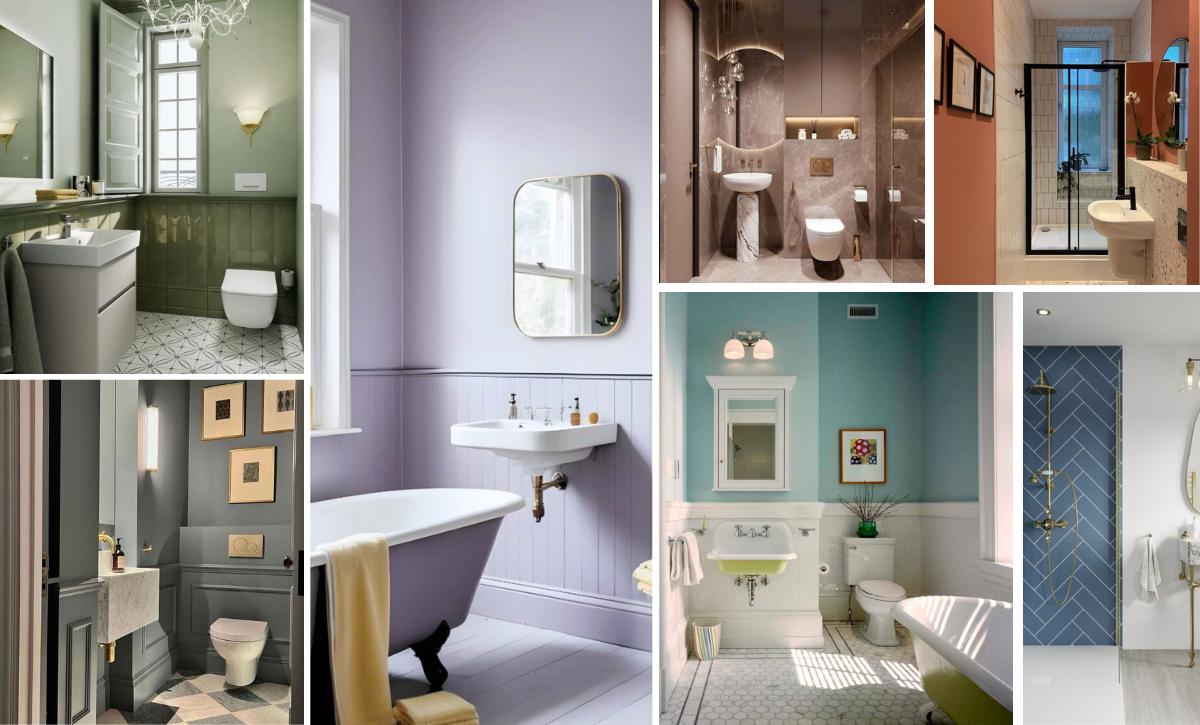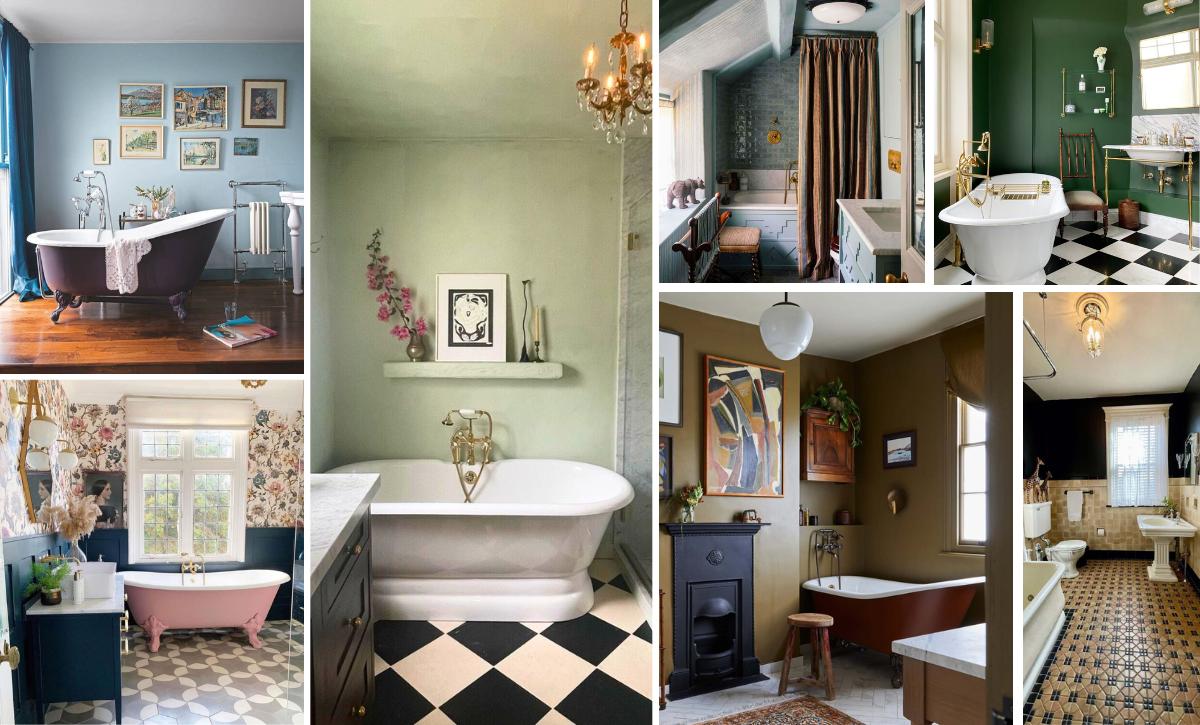Choosing the right material for the sink is actually more important than choosing its design.
If the material used is not durable enough, that could cost you a lot of nerves and money. As the trough sinks are usually quite expensive, it is very important to make a smart decision which material to use.
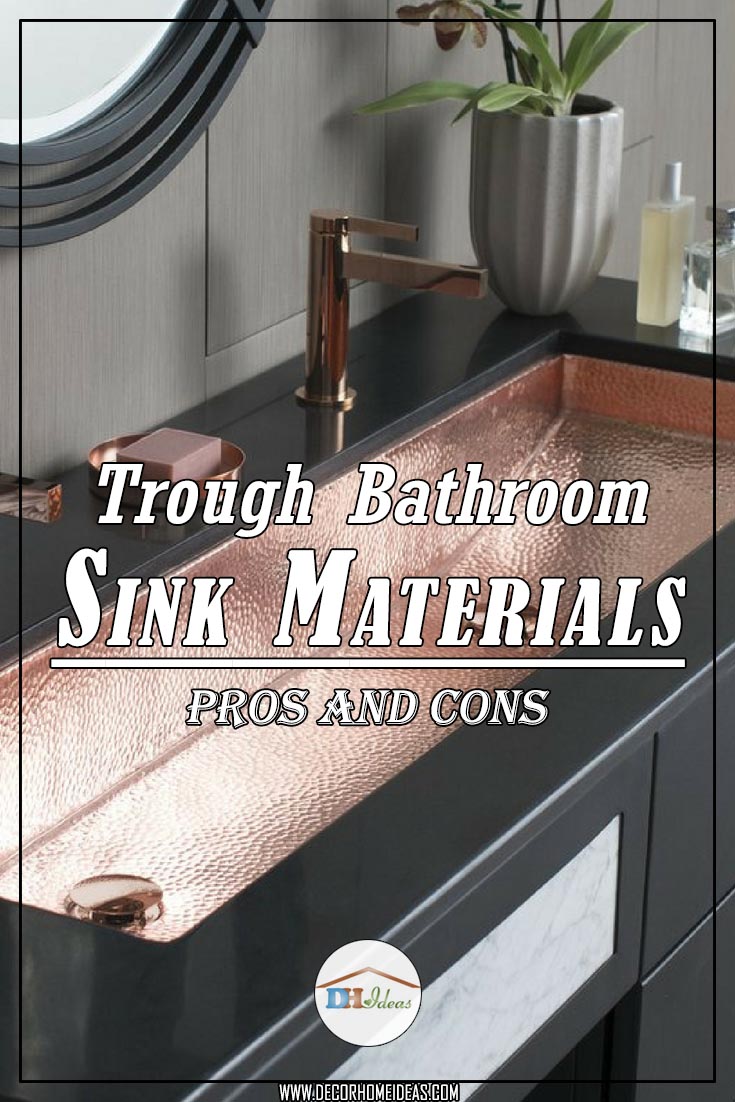
In the following article, we’ve reviewed all popular trough bathroom sink materials by trying to describe all the advantages and disadvantages of each of them so that you can safely choose the best one for your needs.
1.Stainless Steel Trough Sink
The stainless steel is the most popular trough bathroom sink materials.
Learn more about the above model: Here
Pros: Enduring, simply maintained, higher quality resists water spots, ruptures, and scratches, the diluent is quickly out there and at a really reasonable price.
The abundant content of nickel gives the bathroom sink a nicer, shinier look. Stainless steel is more flexible than most of the materials used for trough bath sink so dainty items dropped into a stainless sink tend to break harder.
As most of the scratches could be brushed out, most of the people prefer a brushed effect in the end.
Moreover, the material is light and allows easier and more stable attachment.
Cons: The stainless steel would fit well only in a modern trough bathroom sink. Try to avoid the usage of thinner stainless steel (22 gauge) as it could be easily scraped very easy.
Also, keep in mind that if the quality of the steel is not good enough, some rust might occur at different spots on the surface.
2. Trough Sink Made Of Composite Granite
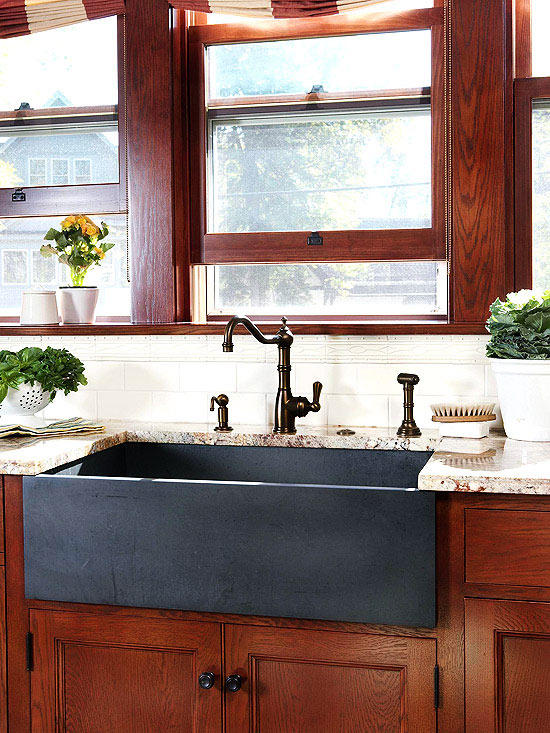
Photo:Credit
Pros
- Persistence: The top-notch quality composite granite trough bathroom sink is formed under high pressure. That is the reason why it is incompressible, aseptic, and durable to heat, stains, and scratches. Also, you don’t need to make the composite granite sink surface airtight.
- Assortment: There is an endless variety of shapes, sizes, colors options to make your countertop breath-taking. Choose black, white, or brown for a timeless look.
- Texture: The composite granite stone trough sink features homogenous coloring throughout the material.
- Price: The price of the composite granite trough sink is usually more affordable than the natural granite sink.
Cons
- Persistence: In order to avoid damaging the composite granite trough sink with the bleak chemicals, follow the cleaning instructions given by the manufacturer.
- Hardness: The composite granite is quite hard material so be careful with the glassware as it might be easily broken.
- Color consistency: The composite granite does not offer a variety of colors.
- Price: It is fairly pricier than other popular materials such as the stainless steel and porcelain.
3. Porcelain, Chinaware, Fireclay
Learn more about the above model: Here
Pros: Their firm surface will not rust or discolor easily.
There is a huge variety of shapes, sizes, and colors offered on the market nowadays. Moreover, these materials are easily maintained and could be cleaned without using any harsh chemicals.
To be honest, this is my favorite type of trough sink when remodeling either mine or a client’s bathroom as I can bring any vibe I want.
Cons: There aren’t many disadvantages of these types of materials.
However they can break quite easily, they are still more durable than other materials. There is a huge price range depending on the style and function.
4. Double Trough Bathroom Sink Made Of Copper
Learn more about the above model: Here
Pros:
- Appealing: The copper trough sinks vanity is usually the customers’ first choice thanks to its elegant appearance. It pairs well with both traditional and modern design. I love the warmth it brings to the room.
- Easily maintained: In fact, this copper farmhouse trough bathroom sink with two faucets (on the picture) can be easily maintained. All you need to remember is to keep away hot dishes, acidic liquids (such as orange juice), and harsh chemicals. The cleaning of a copper sink involves a basic soap and a water (plus a copper cleaner once a month).
- The copper is a natural antiseptic and kills the harmful bacteria on its surface.
- Copper material is not tolerant of staining. However, try to avoid pouring acidic liquids as it could lower its resistance.
- Larger workspace: The copper farmhouse trough sink is usually bigger than the regular ones which provide you more space to carry out various tasks.
- Endurance: The copper trough sink with 2 faucets you see on the picture could literally last forever. The material is very durable.
- Increased home value: Installing a copper sink would increase the value of your house.
- Availability of styles: There is a huge variety of shapes and styles so the chance to find the sink that fits yours is high.
Cons:
As stylish and practical as they are, farmhouse copper sinks also have some disadvantages.
- As the copper easily reacts with substances (mainly acids and hot utensils), it could be easily damaged. This is why some dark spots are appearing over time. The best way to prevent the patina is by applying a sealant.
- The repairs and replacement of this type of sink could eventually leave you tapped out.
- Comparing to other materials the apron copper sinks are quite expensive and may not be affordable for people with tight budget.
- As they are usually larger, the copper sinks will require more space. If your kitchen or bathroom is not spacious enough, you may have to give up the idea of installing a copper sink.
- It is difficult to install a copper sink. You will need to find a professional help which creates some additional costs.
- Unequal finishing. Just before a copper sink attains a uniform and even polish, it goes to a point when the color becomes unsteady. That makes the sink unappealing for a short period of time.
4. Concrete Trough Sink
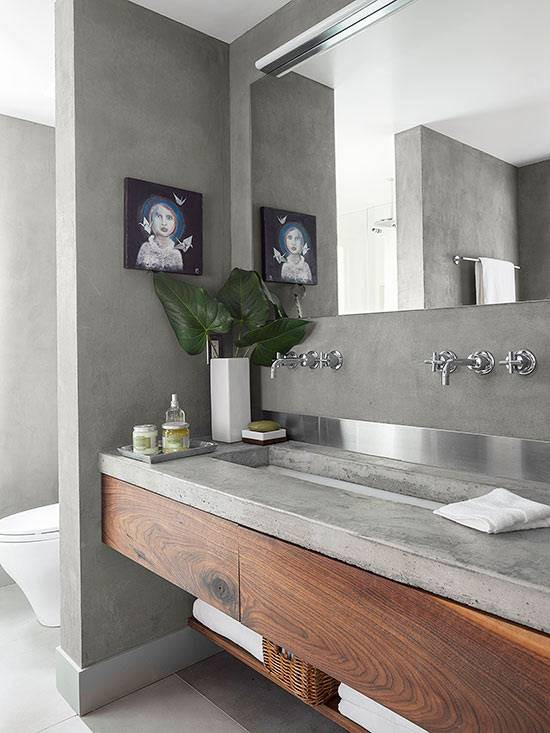
Let’s now focus on some of the reason you should definitely consider buying a concrete trough sink for your bathroom.
First of all, it is a great material if you are looking for something unique. As they are not very popular, it will need to be almost customized.
Second, however it doesn’t give a smooth elegant look, the concrete is well-known as a very durable and lasting material. It is quite heavy which is why the installation of this type of trough sink is so difficult.
Lastly, the concrete cracks and chips very easily so you need to be careful while using it.
5. Marble Trough Sink
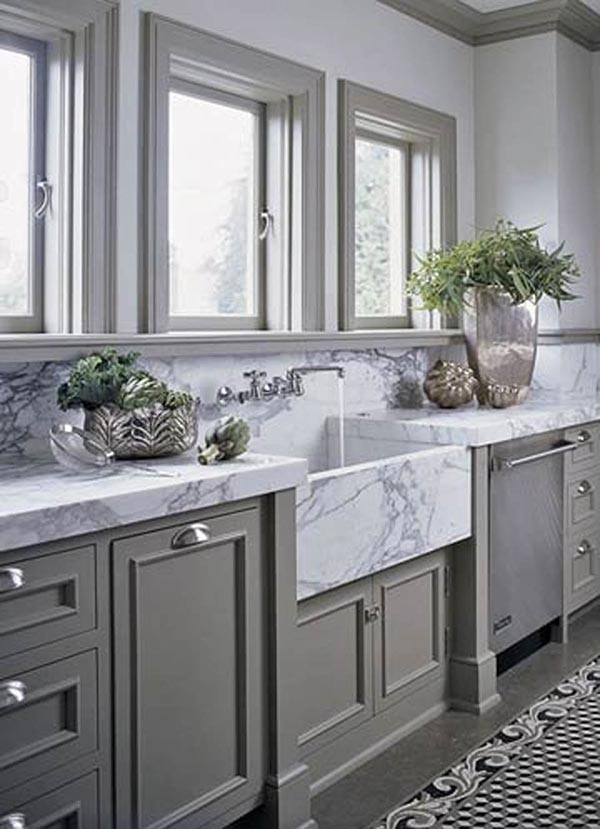
Marble sinks are extremely beautiful, however, they are also quite pricey and high-maintenance.
The marble should be re-sealed regularly to last longer. Also, keep the abrasive cleaners and the acidic liquids away if you want to prevent it from staining.
6. Glass Sink
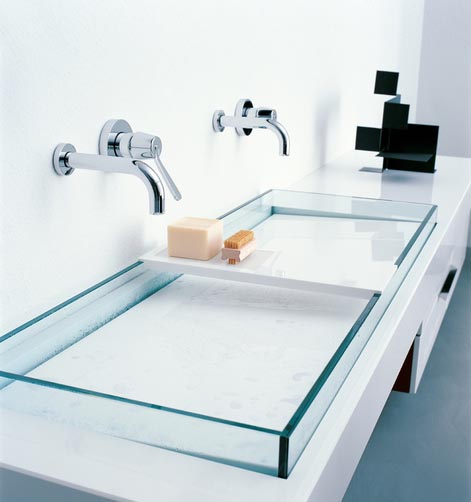
Photo:Credit
However the glass sink is very stylish and classy, you need to consider carefully if it would fit the overall design of your bathroom. The best part is that it comes in a huge variety of shapes, sizes, and colors.
Here are few things to keep in mind while choosing a new trough sink.
– The glass is not durable compared to the other metal materials.
– It’s more expensive than the classic stainless steel sink.
7. Cast Iron Trough Sink

Photo:Credit
Today, you can find a beautiful cast iron undermount trough sink to remodel your bathroom.
Regardless of their durability, the enamel coating on cast iron trough sink can dent or crack if you drop a heavy pot or knife which will lead to rust appearance.
Also, as the cast iron sinks are quite bulky and heavy, they require a solid countertop and cabinet.
8. Wood
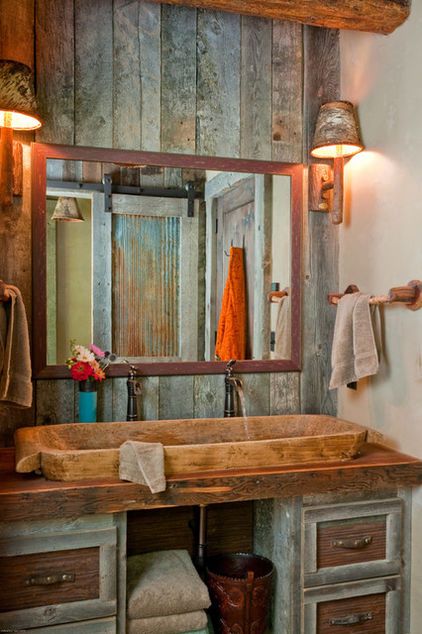
Photo:Credit
The last one of the trough bathroom sink materials I’ll speak about is the wood.
Pros: It’s a natural, eco-friendly product. If it’s well-processed it is water-resistant. It comes in different shapes and designs. It’s not heavy at all.
Cons: The disadvantage is the color, which fits well only farmhouse interior. Tend to crack in time. Hard to mount.
For your quick reference you can use the following infographic:


